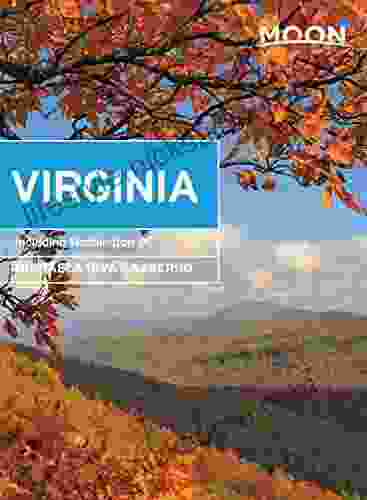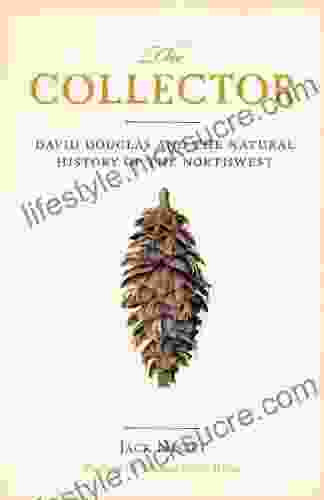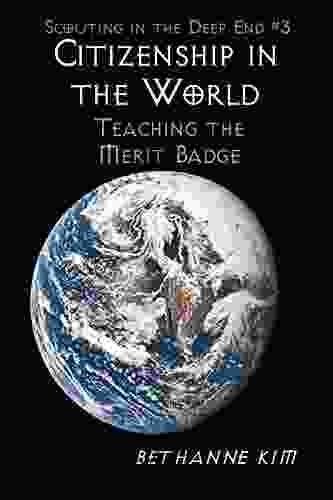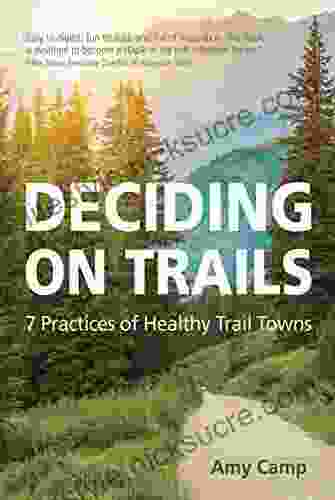Preserving Indigenous Science and Biodiversity in the Upper Amazon: A Crucial Endeavor for the Future of the Planet

The Upper Amazon rainforest is the largest rainforest in the world, covering an area of over 5.5 million square kilometers. It is home to an incredible wealth of biodiversity, with over 40,000 plant species, 3,000 freshwater fish species, and 1,300 bird species. The rainforest is also home to a large number of indigenous peoples, who have lived in the region for thousands of years.
4.7 out of 5
| Language | : | English |
| File size | : | 35311 KB |
| Text-to-Speech | : | Enabled |
| Screen Reader | : | Supported |
| Enhanced typesetting | : | Enabled |
| Print length | : | 635 pages |
Indigenous peoples have a deep understanding of the rainforest and its ecosystems. They have developed a wealth of traditional knowledge about the plants, animals, and natural resources of the rainforest. This knowledge is essential for the conservation of the rainforest and its biodiversity.
Indigenous science is based on observation, experimentation, and trial and error. It is a cumulative body of knowledge that has been passed down from generation to generation. Indigenous scientists have a deep understanding of the rainforest's ecosystems and how to manage them sustainably.
The preservation of indigenous science is essential for the conservation of the Upper Amazon rainforest. Indigenous peoples have a vested interest in protecting the rainforest, as their livelihoods and cultures depend on it. They have a deep understanding of the rainforest's ecosystems and how to manage them sustainably.
In addition to its importance for the conservation of the rainforest, indigenous science also has a number of other benefits. Indigenous knowledge can help us to develop new medicines, agricultural techniques, and renewable energy sources. It can also help us to understand the impacts of climate change and how to adapt to them.
The preservation of indigenous science and biodiversity in the Upper Amazon is a crucial endeavor for the future of the planet. Indigenous peoples have a wealth of knowledge that can help us to conserve the rainforest and its biodiversity. They also have a vested interest in protecting the rainforest, as their livelihoods and cultures depend on it.
Threats to Indigenous Science and Biodiversity
There are a number of threats to indigenous science and biodiversity in the Upper Amazon. These threats include:
- Deforestation: The rainforest is being cleared at an alarming rate for logging, agriculture, and mining. This is destroying the habitat of indigenous peoples and their traditional way of life.
- Climate change: Climate change is causing the rainforest to become warmer and drier. This is changing the distribution of plants and animals, and making it more difficult for indigenous peoples to hunt, fish, and gather food.
- Pollution: Pollution from mining, oil drilling, and agriculture is contaminating the rainforest and its waterways. This is harming the health of indigenous peoples and their traditional way of life.
- Cultural assimilation: Indigenous peoples are being assimilated into mainstream society, which is leading to the loss of their traditional knowledge and practices.
Protecting Indigenous Science and Biodiversity
There are a number of things that can be done to protect indigenous science and biodiversity in the Upper Amazon. These include:
- Supporting indigenous peoples: Indigenous peoples are the best stewards of the rainforest. We need to support their efforts to conserve the rainforest and their traditional way of life.
- Protecting the rainforest: We need to protect the rainforest from deforestation, climate change, pollution, and cultural assimilation.
- Promoting indigenous science: We need to promote indigenous science and its use in conservation and sustainable development.
- Educating ourselves: We need to educate ourselves about the importance of indigenous science and biodiversity.
The preservation of indigenous science and biodiversity in the Upper Amazon is a crucial endeavor for the future of the planet. Indigenous peoples have a wealth of knowledge that can help us to conserve the rainforest and its biodiversity. They also have a vested interest in protecting the rainforest, as their livelihoods and cultures depend on it.
We need to support indigenous peoples and their efforts to conserve the rainforest and their traditional way of life. We also need to protect the rainforest from deforestation, climate change, pollution, and cultural assimilation. Finally, we need to promote indigenous science and its use in conservation and sustainable development.
4.7 out of 5
| Language | : | English |
| File size | : | 35311 KB |
| Text-to-Speech | : | Enabled |
| Screen Reader | : | Supported |
| Enhanced typesetting | : | Enabled |
| Print length | : | 635 pages |
Do you want to contribute by writing guest posts on this blog?
Please contact us and send us a resume of previous articles that you have written.
 Fiction
Fiction Non Fiction
Non Fiction Romance
Romance Mystery
Mystery Thriller
Thriller SciFi
SciFi Fantasy
Fantasy Horror
Horror Biography
Biography Selfhelp
Selfhelp Business
Business History
History Classics
Classics Poetry
Poetry Childrens
Childrens Young Adult
Young Adult Educational
Educational Cooking
Cooking Travel
Travel Lifestyle
Lifestyle Spirituality
Spirituality Health
Health Fitness
Fitness Technology
Technology Science
Science Arts
Arts Crafts
Crafts DIY
DIY Gardening
Gardening Petcare
Petcare Jack Falla
Jack Falla Anna B Doe
Anna B Doe Vivian Vande Velde
Vivian Vande Velde Silvia Botros
Silvia Botros Jack Freeman
Jack Freeman David Elkington
David Elkington Sterling Test Prep
Sterling Test Prep Amelia Parker
Amelia Parker Peter Larson
Peter Larson Amy Brown
Amy Brown Ana And Jack Hicks
Ana And Jack Hicks Rachel Gurevich
Rachel Gurevich Sarah Morgan Haydock
Sarah Morgan Haydock Sean Gibson
Sean Gibson John Ferrell
John Ferrell Stephen J Collier
Stephen J Collier Deborah Vinall Psyd Lmft
Deborah Vinall Psyd Lmft Test Masters
Test Masters Amy Camp
Amy Camp Deborah J Rumsey
Deborah J Rumsey Amir Alexander
Amir Alexander Andy Couturier
Andy Couturier Sonia Hartl
Sonia Hartl Jim Santos
Jim Santos Mark Stallard
Mark Stallard Joseph Wayne Smith
Joseph Wayne Smith Sandra Bardwell
Sandra Bardwell Derek Thompson
Derek Thompson Robert Melillo
Robert Melillo Jack Nisbet
Jack Nisbet Anthony Horowitz
Anthony Horowitz Steve Greenberg
Steve Greenberg Swede Burns
Swede Burns Chad Starkey
Chad Starkey Vicki Hearne
Vicki Hearne Cookie O Gorman
Cookie O Gorman Amit Saha
Amit Saha David Yoon
David Yoon Malba Tahan
Malba Tahan Jayson Gaddis
Jayson Gaddis The 60 Minutes Summary
The 60 Minutes Summary Kenneth P Stephens
Kenneth P Stephens Wendy Margolis
Wendy Margolis Marisa Anne Bass
Marisa Anne Bass Ellie Wood
Ellie Wood Harley Reid
Harley Reid Don Bowers
Don Bowers E T Bryant
E T Bryant Jan Marie Mueller
Jan Marie Mueller Helen E Fisher
Helen E Fisher Jenni Hicks
Jenni Hicks Jeff Martone
Jeff Martone Randall E Schumacker
Randall E Schumacker Victor J Stenger
Victor J Stenger Ashley Scott
Ashley Scott Lisa Maloney
Lisa Maloney David Salsburg
David Salsburg Nikala Smith
Nikala Smith Anthony Haynes
Anthony Haynes Josh Taylor
Josh Taylor Sarah Woodbury
Sarah Woodbury Sarah Sumbal
Sarah Sumbal Rosalind Wiseman
Rosalind Wiseman Rich Rousseau
Rich Rousseau Nicholeen Peck
Nicholeen Peck Paul Kockelman
Paul Kockelman Joe Dan Lowry
Joe Dan Lowry Patricia L Papernow
Patricia L Papernow Meikang Qiu
Meikang Qiu Bill Carter
Bill Carter Randy Schultz
Randy Schultz Steven C Hayes
Steven C Hayes Kate Parham Kordsmeier
Kate Parham Kordsmeier Erica T Lehrer
Erica T Lehrer Ruth Nestvold
Ruth Nestvold H Bedford Jones
H Bedford Jones Amie Kaufman
Amie Kaufman Jenny Landreth
Jenny Landreth Wolf Moon
Wolf Moon A Sorority Of Mothers
A Sorority Of Mothers Marshall Goldsmith
Marshall Goldsmith Jake Maddox
Jake Maddox Joan Freeman
Joan Freeman Dan Schlossberg
Dan Schlossberg Autumn Jordon
Autumn Jordon Robb Walsh
Robb Walsh Jacob Bronowski
Jacob Bronowski Rick Stanton
Rick Stanton Jocelyn Goodwin
Jocelyn Goodwin John Bingham
John Bingham Guillaume Haeringer
Guillaume Haeringer Richard Cohen
Richard Cohen Theresa Y Wee M D
Theresa Y Wee M D Alex Stone
Alex Stone Ned Seaton
Ned Seaton Byron Nelson
Byron Nelson Sandra T Barnes
Sandra T Barnes Nisha Garg
Nisha Garg Marit Weisenberg
Marit Weisenberg Amber Lee Sellers
Amber Lee Sellers Md Mahady Hasan
Md Mahady Hasan Camille Glenn
Camille Glenn Summer Michaud Skog
Summer Michaud Skog Joseph Klaits
Joseph Klaits Oscar Baechler
Oscar Baechler Traci Gormley
Traci Gormley Rodney M Howard Browne
Rodney M Howard Browne Eric E Bowne
Eric E Bowne Jonathan Law
Jonathan Law Jonathon Miller Weisberger
Jonathon Miller Weisberger Bethanne Kim
Bethanne Kim Joseph Mcmoneagle
Joseph Mcmoneagle Arlene Blum
Arlene Blum Buck Tilton
Buck Tilton Kathleen M Stacy
Kathleen M Stacy Chad Ford
Chad Ford Amy B Middleman
Amy B Middleman June Cl Tan
June Cl Tan Ronda Rousey
Ronda Rousey Catherine Dees
Catherine Dees Emma Mae Jenkins
Emma Mae Jenkins Tabitha Suzuma
Tabitha Suzuma Chris Irons
Chris Irons Shaun Gallagher
Shaun Gallagher Mark Turley
Mark Turley Dolores Kong
Dolores Kong Tavi Gevinson
Tavi Gevinson Candy Verney
Candy Verney Eugenia Viti
Eugenia Viti Tracy Lorraine
Tracy Lorraine Md Rezowan Ahmed
Md Rezowan Ahmed William G Dever
William G Dever Tahlia Kirk
Tahlia Kirk Valerie Bass
Valerie Bass Julie Schacht Sway
Julie Schacht Sway Martin Williams
Martin Williams Eric Tyndall
Eric Tyndall J Stephen Jones
J Stephen Jones Christine Fanthome
Christine Fanthome Ignatius Donnelly
Ignatius Donnelly Holly Herrick
Holly Herrick Lisa Zimmer Hatch
Lisa Zimmer Hatch Laura Slinn
Laura Slinn Christopher Cousteau
Christopher Cousteau John Lukacs
John Lukacs Andy Hunt
Andy Hunt John Maxwell Wood
John Maxwell Wood Erika Napoletano
Erika Napoletano Stephen M Barr
Stephen M Barr Gal Dem
Gal Dem Don Mann
Don Mann Paul Wieland
Paul Wieland Janet Engle
Janet Engle David Ranney
David Ranney William Bohan
William Bohan Gail Maccoll
Gail Maccoll Ananda Lowe
Ananda Lowe Kieron Gillen
Kieron Gillen Rose Mannering
Rose Mannering Mark W T Harvey
Mark W T Harvey Melody Schreiber
Melody Schreiber Donna Williams
Donna Williams John Mcpherson
John Mcpherson Claudia J Carr
Claudia J Carr Clancy Cavnar
Clancy Cavnar Tyler Simmons
Tyler Simmons Douglas Wilson
Douglas Wilson Terry Wieland
Terry Wieland Joe Nickell
Joe Nickell Patrick O Sullivan
Patrick O Sullivan Kasie West
Kasie West Matthew L Martin
Matthew L Martin Amber Foster
Amber Foster Dima Zales
Dima Zales Susan White
Susan White Amelia Edith Huddleston Barr
Amelia Edith Huddleston Barr Redmond O Hanlon
Redmond O Hanlon Christopher Harlan
Christopher Harlan Grant Dever
Grant Dever Jeremy J Baumberg
Jeremy J Baumberg Vince Kotchian
Vince Kotchian Tim Hornbaker
Tim Hornbaker Sarah J Maas
Sarah J Maas Leslie Sansone
Leslie Sansone Dan Abnett
Dan Abnett Robyn Davidson
Robyn Davidson Christopher E Larsen
Christopher E Larsen K F Breene
K F Breene Carlo Buzzichelli
Carlo Buzzichelli Charles Thompson
Charles Thompson Sean Go
Sean Go Stephen Walker
Stephen Walker Chloe Gong
Chloe Gong Alexandrea Weis
Alexandrea Weis C W Lockhart
C W Lockhart Peter Worley
Peter WorleyK D
 Ned Vizzini
Ned Vizzini Charles J Alsheimer
Charles J Alsheimer American Psychological Association
American Psychological Association Shanna Cunning
Shanna Cunning Christina Kamp
Christina Kamp Martin Pollizotto
Martin Pollizotto Kumo Kagyu
Kumo Kagyu Pico Iyer
Pico Iyer Mike Adamick
Mike Adamick Gary Wiener
Gary Wiener Diane Greer
Diane Greer Dr Bob Rotella
Dr Bob Rotella Rick Deutsch
Rick Deutsch Steven Charleston
Steven Charleston Norman Doidge
Norman Doidge Amelia Freer
Amelia Freer Joseph P Weir
Joseph P Weir John A Buehrens
John A Buehrens Kathy Spratt
Kathy Spratt William Glasser M D
William Glasser M D Stanley I Greenspan
Stanley I Greenspan Jean Christie Ashmore
Jean Christie Ashmore Thom Hartmann
Thom Hartmann Ken Chaddock
Ken Chaddock Tom Patri
Tom Patri Joe Dante
Joe Dante P Aarne Vesilind
P Aarne Vesilind Jason Thompson
Jason Thompson Charles Hall
Charles Hall Kate Fox
Kate Fox Heather Macfadyen
Heather Macfadyen Amara Charles
Amara Charles Nick Kolenda
Nick Kolenda Brittany Clair
Brittany Clair Amy Perry
Amy Perry Eric T Knight
Eric T Knight Henry A Zumbrun 2
Henry A Zumbrun 2 Amber Zygutis
Amber Zygutis Eric Zweig
Eric Zweig Fred Pyrczak
Fred Pyrczak Tom Taulli
Tom Taulli Philippa Langley
Philippa Langley Julie Mosier
Julie Mosier Antonio R Damasio
Antonio R Damasio Paul Schwartz
Paul Schwartz Karen Deerwester
Karen Deerwester John Jacobs
John Jacobs Jennifer S Kelly
Jennifer S Kelly Therese A Rando
Therese A Rando James W Williams
James W Williams Amira Mikhail
Amira Mikhail Mark Worden
Mark Worden Erin Chack
Erin Chack Django Paris
Django Paris Rob Antoun
Rob Antoun Paul Oliver
Paul Oliver Mitt Romney
Mitt Romney Wade Rouse
Wade Rouse Ruth M Tappen
Ruth M Tappen Vinod Kumar Khanna
Vinod Kumar Khanna Rob Fisher
Rob Fisher Doug Peterson
Doug Peterson Sheri Van Dijk
Sheri Van Dijk Krystal Sutherland
Krystal Sutherland Jameson M Wetmore
Jameson M Wetmore Jennifer Margulis
Jennifer Margulis Rosanna Davison
Rosanna Davison Peter Hayes
Peter Hayes William Rosen
William Rosen Gia Giasullo
Gia Giasullo Lady Antiva
Lady Antiva Cole Hersowitz
Cole Hersowitz Trevor Day
Trevor Day Larry K Brendtro
Larry K Brendtro Julie Caplin
Julie Caplin Jean Van T Hul
Jean Van T Hul Anne Chambers
Anne Chambers Pav Bryan
Pav Bryan Kris Leonard
Kris Leonard Amy Blakeslee
Amy Blakeslee Erik Qualman
Erik Qualman Temple Grandin
Temple Grandin Jack Ewing
Jack Ewing Howard J Meditz
Howard J Meditz Gerald Corey
Gerald Corey Tamora Pierce
Tamora Pierce Stephen Goodwin
Stephen Goodwin John L Field
John L Field Ryan Gray
Ryan Gray Tanya Turner
Tanya Turner Amiee Mueller
Amiee Mueller Mark Taylor
Mark Taylor Don Orwell
Don Orwell Frank Nappi
Frank Nappi Kathleen Glasgow
Kathleen Glasgow Jessica Cunsolo
Jessica Cunsolo Mac Fortner
Mac Fortner Sheena Johnstone
Sheena Johnstone Tom Deck
Tom Deck Muhammad Vandestra
Muhammad Vandestra Kevin Stiegelmaier
Kevin Stiegelmaier Kate Tietje
Kate Tietje Saleh Alkhalifa
Saleh Alkhalifa Victoria Richards
Victoria Richards Amy Baldwin
Amy Baldwin Michael Winkelman
Michael Winkelman Julie Barlow
Julie Barlow Mariano Anaya
Mariano Anaya Andy Singleton
Andy Singleton Josephine Atluri
Josephine Atluri Frederick Lenz
Frederick Lenz Kathy A Zahler
Kathy A Zahler Helena P Blavasky
Helena P Blavasky James P Kelly
James P Kelly Brian Klaas
Brian Klaas Michael Reichert
Michael Reichert Lizabeth Hardman
Lizabeth Hardman Michael Parker Pearson
Michael Parker Pearson Denise Ni
Denise Ni Topher Donahue
Topher Donahue Pinky Mckay
Pinky Mckay Joel Cotton
Joel Cotton Paul Kaplowitz
Paul Kaplowitz Paul Dickson
Paul Dickson Robert W D Ball
Robert W D Ball Cathy Williams
Cathy Williams Joe E Harvey
Joe E Harvey Amby Cooper
Amby Cooper Neville Goddard
Neville Goddard Kezia Endsley
Kezia Endsley Jerry D Moore
Jerry D Moore Amber O Neal Johnston
Amber O Neal Johnston Marco Ferrero
Marco Ferrero American Baseball Coaches Association
American Baseball Coaches Association Ray Mancini
Ray Mancini Sandra Luna Mccune
Sandra Luna Mccune Roman Gelperin
Roman Gelperin Amy Adele Hasinoff
Amy Adele Hasinoff Suzanne Stabile
Suzanne Stabile Nikhil Bhardwaj
Nikhil Bhardwaj Jack Tupp
Jack Tupp Candida Lawrence
Candida Lawrence Philip Gibson
Philip Gibson Art Star
Art Star Michael Cosgrove
Michael Cosgrove Garrett M Fitzmaurice
Garrett M Fitzmaurice Elizabeth S Gilbert
Elizabeth S Gilbert Lars Andersen
Lars Andersen Tijan
Tijan Alan I Marcus
Alan I Marcus Kristine Kathryn Rusch
Kristine Kathryn Rusch Richard Wagamese
Richard Wagamese Gina Chen
Gina Chen Michelle Newhart
Michelle Newhart Toni Tone
Toni Tone Tom Colicchio
Tom Colicchio Amy Bizzarri
Amy Bizzarri Shere Hite
Shere Hite Victoria Wood
Victoria Wood American Math Academy
American Math Academy Joseph Conrad
Joseph Conrad Jan E Stets
Jan E Stets Spike Dykes
Spike Dykes Amie Lands
Amie Lands Dmv Test Bank
Dmv Test Bank Danny Dreyer
Danny Dreyer Laekan Zea Kemp
Laekan Zea Kemp Katherine Kurtz
Katherine Kurtz Laini Taylor
Laini Taylor Amrita Pande
Amrita Pande Jason Borte
Jason Borte Jd Mader
Jd Mader James E Packer
James E Packer Bruce Dowbiggin
Bruce Dowbiggin Timothy Malcolm
Timothy Malcolm Zeshan Qureshi
Zeshan Qureshi Shannon O Bourne
Shannon O Bourne Stephen Barr
Stephen Barr Michael R Poll
Michael R Poll Paul Graham
Paul Graham Cynthia Gabriel
Cynthia Gabriel Kresley Cole
Kresley Cole Jon Bonnell
Jon Bonnell Deborah Lipsky
Deborah Lipsky Sue Monk Kidd
Sue Monk Kidd Tim Marshall
Tim Marshall Marina Robb
Marina Robb Liz Fosslien
Liz Fosslien Dr Elizabeth Cherevaty Nd Rac
Dr Elizabeth Cherevaty Nd Rac Warren B Powell
Warren B Powell Heidi J Larson
Heidi J Larson Jean Rose
Jean Rose Michael Ondaatje
Michael Ondaatje Umer W
Umer W Thomas J Whalen
Thomas J Whalen Ruta Nonacs
Ruta Nonacs Clotaire Rapaille
Clotaire Rapaille Andrey Ryanskiy
Andrey Ryanskiy Sharon K Zumbrunn
Sharon K Zumbrunn Nina Freudenberger
Nina Freudenberger Shalabh Aggarwal
Shalabh Aggarwal Hadley Wickham
Hadley Wickham Reinhold Messner
Reinhold Messner Josiah Hesse
Josiah Hesse Adam Cort
Adam Cort Johan Norberg
Johan Norberg Elizabeth Lim
Elizabeth Lim Laurie A Watkins
Laurie A Watkins Nicholas A Christakis
Nicholas A Christakis Derrick Jensen
Derrick Jensen Angela Moore
Angela Moore Joellen Patterson
Joellen Patterson Eugene C Toy
Eugene C Toy J Marin Younker
J Marin Younker Brendan Leonard
Brendan Leonard Jeff Gaudette
Jeff Gaudette Brian Pace
Brian Pace Michaela Riva Gaaserud
Michaela Riva Gaaserud Pamela Lynn
Pamela Lynn Bridget Ericsson
Bridget Ericsson Alan Margot
Alan Margot Donovan Hohn
Donovan Hohn Jeanne Ryan
Jeanne Ryan Amber Smith
Amber Smith Matthew Lombardi
Matthew Lombardi Amy Mccready
Amy Mccready Stanley J Farlow
Stanley J Farlow Sian Warriner
Sian Warriner Cordelia K Castel
Cordelia K Castel David Grinspoon
David Grinspoon Theresa I Soto
Theresa I Soto William Stillman
William Stillman Joseph Howse
Joseph Howse Amy Bleuel
Amy Bleuel Jeffrey Steadman
Jeffrey Steadman David Guymer
David Guymer K M Shea
K M Shea Susanna Heli
Susanna Heli Brian Kateman
Brian Kateman Jessica Hatcher Moore
Jessica Hatcher Moore Trent Shelton
Trent Shelton Amante P Marinas
Amante P Marinas Devin Olsen
Devin Olsen Dave Hanson
Dave Hanson Amber Lia
Amber Lia Iain Pardoe
Iain Pardoe Robert A Weinberg
Robert A Weinberg Kyle Hunt
Kyle Hunt Naomi Oreskes
Naomi Oreskes George Bernard Shaw
George Bernard Shaw Maria Youtman
Maria Youtman Glenn Stout
Glenn Stout Desi Northup
Desi Northup Jack Weatherford
Jack Weatherford Alex Polyakov
Alex Polyakov Benjamin Jelen
Benjamin Jelen James Mullaney
James Mullaney David Burch
David Burch J L Weil
J L Weil Courtney Defeo
Courtney Defeo Dana Obleman
Dana Obleman Isabella Krystynek
Isabella Krystynek L Frank Baum
L Frank Baum Nathan Belofsky
Nathan Belofsky Cody Monk
Cody Monk Craig Larman
Craig Larman C L Simchick
C L Simchick Michael Abayomi
Michael Abayomi Elise Christie
Elise Christie Edward J Denecke
Edward J Denecke Torey L Hayden
Torey L Hayden Catherine Ryan Gregory
Catherine Ryan Gregory Louise Bates Ames
Louise Bates Ames Dr Scott A Johnson
Dr Scott A Johnson Sarah Dessen
Sarah Dessen Theodore Sider
Theodore Sider Don Stradley
Don Stradley Chris Carlsson
Chris Carlsson Dom Amore
Dom Amore Jonathan Bartlett
Jonathan Bartlett Stephenie Meyer
Stephenie Meyer Cheri Rae
Cheri Rae
Light bulbAdvertise smarter! Our strategic ad space ensures maximum exposure. Reserve your spot today!

 Glen PowellAn Illustrated Companion for Moms-to-Be: A Comprehensive Guide to Pregnancy,...
Glen PowellAn Illustrated Companion for Moms-to-Be: A Comprehensive Guide to Pregnancy,...
 Carl WalkerBullying Reference Handbook: A Comprehensive Guide to Bullying Prevention and...
Carl WalkerBullying Reference Handbook: A Comprehensive Guide to Bullying Prevention and... D'Angelo CarterFollow ·13.7k
D'Angelo CarterFollow ·13.7k Willie BlairFollow ·10.5k
Willie BlairFollow ·10.5k Adam HayesFollow ·17.6k
Adam HayesFollow ·17.6k Charles DickensFollow ·6.9k
Charles DickensFollow ·6.9k Cruz SimmonsFollow ·15.2k
Cruz SimmonsFollow ·15.2k Thomas PowellFollow ·8.9k
Thomas PowellFollow ·8.9k Fletcher MitchellFollow ·11.1k
Fletcher MitchellFollow ·11.1k Guillermo BlairFollow ·12.4k
Guillermo BlairFollow ·12.4k

 Ira Cox
Ira CoxUnveiling the Hidden Gem: Moon, Virginia - A Washington...
Nestled within the picturesque...

 Jorge Luis Borges
Jorge Luis BorgesThe Ultimate Survivalist's Medical Guide: A Comprehensive...
In the realm of...

 Henry Green
Henry GreenDavid Douglas: Exploring the Natural History of the...
David Douglas was a...

 Eric Hayes
Eric HayesUnderstanding Citizenship in a Globalized World: A...
Citizenship is a complex and multifaceted...

 Will Ward
Will WardUnveiling Research Real Talk: Navigating the Labyrinth of...
Research, the...
4.7 out of 5
| Language | : | English |
| File size | : | 35311 KB |
| Text-to-Speech | : | Enabled |
| Screen Reader | : | Supported |
| Enhanced typesetting | : | Enabled |
| Print length | : | 635 pages |










